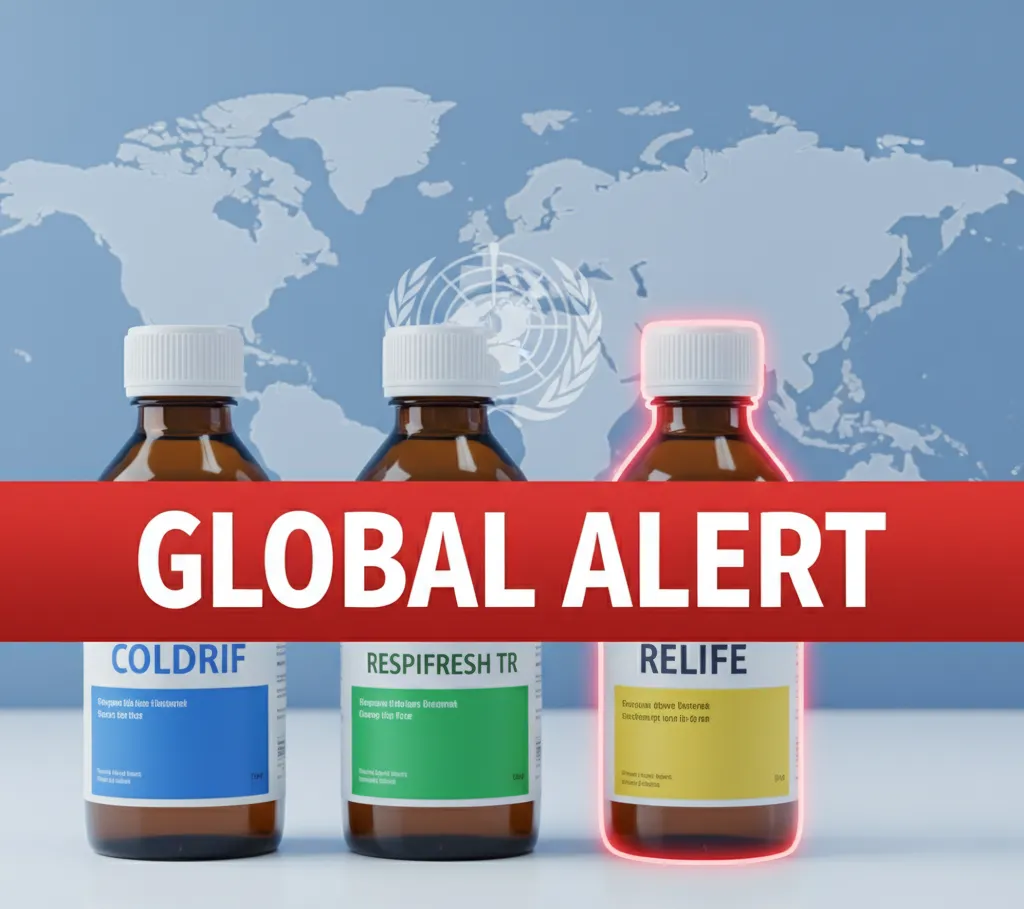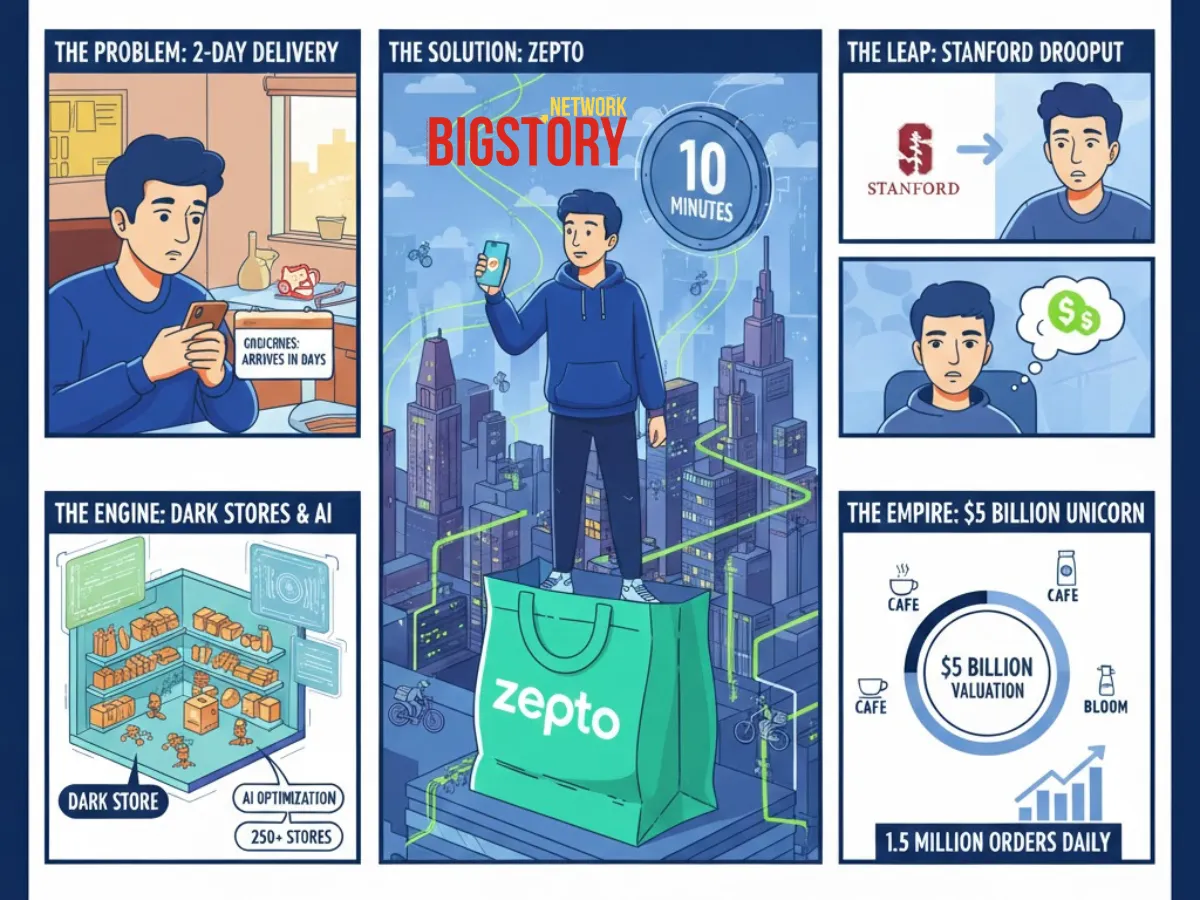WHO issues medical alert over three Indian cough syrups found contaminated with toxic diethylene glycol, linked to 20 child deaths in Madhya Pradesh. Regulatory action and global surveillance underway.
 Sseema Giill
Sseema Giill

The World Health Organization (WHO) has issued a global medical product alert for three contaminated cough syrups manufactured in India after at least 20 children died in Madhya Pradesh. Laboratory testing confirmed the presence of diethylene glycol (DEG), a toxic chemical not permitted in pharmaceutical products. The incident has renewed international attention on medicine quality standards and regulatory oversight in India’s pharmaceutical industry.
The WHO alert identified three syrups—Coldrif (Sresan Pharmaceuticals), Respifresh TR (Rednex Pharmaceuticals), and ReLife (Shape Pharma)—after tests showed DEG contamination well above permissible limits. The contamination was first detected on October 8, 2025, following reports of a cluster of unexplained child deaths beginning in early September in Chhindwara district, Madhya Pradesh. Additional fatalities were reported in Rajasthan.
India’s Central Drugs Standard Control Organization (CDSCO) alerted the WHO and ordered an immediate halt to production at the implicated facilities in Tamil Nadu and Gujarat. The Tamil Nadu government has permanently cancelled Sresan Pharmaceuticals’ manufacturing license, and criminal proceedings have been initiated against the manufacturers.
The Union Health Ministry directed all states and union territories to conduct a review of compliance with drug quality standards. The Maharashtra FDA initiated inspections across manufacturers of liquid oral formulations to identify and remove any contaminated products from circulation.
The affected children presented with symptoms including abdominal pain, vomiting, inability to pass urine, and neurological complications. Investigations confirmed acute kidney injury linked to DEG poisoning. Several children remain hospitalized in critical condition.
This is not the first incident involving DEG contamination in cough syrups produced in India. Similar cases since 2020 have been linked to over 300 child deaths globally, including incidents in The Gambia and Uzbekistan. Public health experts have pointed to regulatory gaps and enforcement inconsistencies as contributing factors.
India is the world’s largest supplier of generic medicines, accounting for 40% of U.S. generic imports and 25% of the U.K. market. The WHO alert has prompted international regulators to increase surveillance of pharmaceutical imports.
The incident occurs at a time when global trade dynamics around pharmaceuticals are already sensitive, and international partners are expected to review inspection and quality verification protocols for Indian exports.
CDSCO has made testing for DEG and ethylene glycol mandatory in both raw materials and finished products. The Indian Pharmacopoeia Commission has amended standards to make DEG testing compulsory for all oral liquid formulations, aiming to strengthen quality assurance mechanisms.
India’s pharmaceutical industry is valued at $55 billion and exports medicines to more than 200 countries. Quality control lapses can have serious domestic and international health implications, as well as economic and reputational consequences for the sector. Strengthening regulatory systems, improving surveillance, and ensuring compliance with international quality standards remain key priorities in the aftermath of this incident.
The alert was issued after laboratory tests confirmed the presence of diethylene glycol (DEG) in three Indian-made cough syrups—Coldrif, Respifresh TR, and ReLife—linked to at least 20 child deaths in Madhya Pradesh.
DEG is a toxic industrial solvent not approved for pharmaceutical use. Ingesting DEG can cause acute kidney injury, neurological damage, and death, especially in children.
The majority of deaths occurred in Chhindwara district, Madhya Pradesh, with additional cases reported in Rajasthan. Several children remain in critical condition.
According to the U.S. FDA, the contaminated syrups were not exported to the United States. However, WHO has urged all countries to increase surveillance of their pharmaceutical supply chains to detect any potential circulation.






Sign up for the Daily newsletter to get your biggest stories, handpicked for you each day.
 Trending Now! in last 24hrs
Trending Now! in last 24hrs



